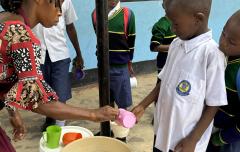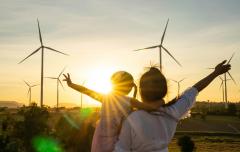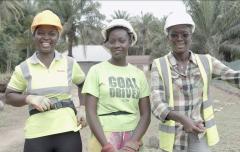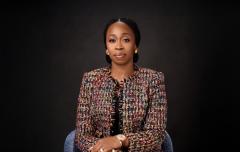A robust energy goal in the post-2015 Development Agenda is an imperative. Pakistan, Norway and Denmark push for international targets on Sustainable Energy for All.
New York (September 24, 2013): The Prime Ministers of Pakistan, H.E. Muhammad Nawaz Sharif, and Norway, H.E. Jens Stoltenberg, and the Minister for Development Co-operation of Denmark, H.E Christian Friis Bach, who are also co-chairing a 32 member country Group of Friends on Sustainable Energy for All, agreed that the three countries would push for a goal on sustainable energy for all as part of the post-2015 Development Agenda. The three leaders met on the margins of the 68th session of the United Nations General Assembly today and were joined by Mr. Kandeh Yumkella, Special Representative of the Secretary-General and Chief Executive for Sustainable Energy for All.
The three countries have been leading efforts at the United Nations in support of sustainable energy for all. Energy, the three leaders agreed, is the golden thread that connects economic growth, increased social equity, and an environment that allows the world to thrive. Realizing sustainable energy is central to eradicating poverty, increasing food production, providing clean water, improving public health, empowering women and addressing climate change.
This trilateral statement follows the recent declaration by the General Assembly to declare 2014-2024 the United Nations Decade of Sustainable Energy for All; a testimony of the commitment of all Member States to this crucial issue.
The three leaders pledged their full support to the Secretary-General’s initiative on Sustainable Energy for All (SEforALL) as a global partnership that can move the world forward. The initiative, a key priority of the Secretary-General, was launched in 2011 to catalyze and mobilize action towards the overall goal of sustainable energy for all by 2030 through three critical objectives:
- 1. ensuring universal access to modern energy services;
- 2. doubling the global rate of improvement in energy efficiency; and
- 3. doubling the share of renewable energy in the global energy mix.



